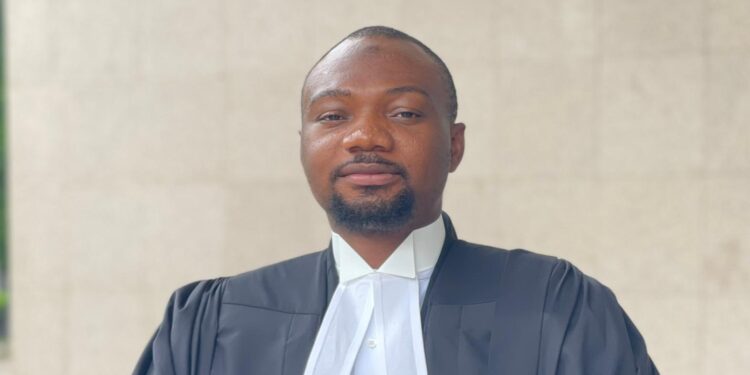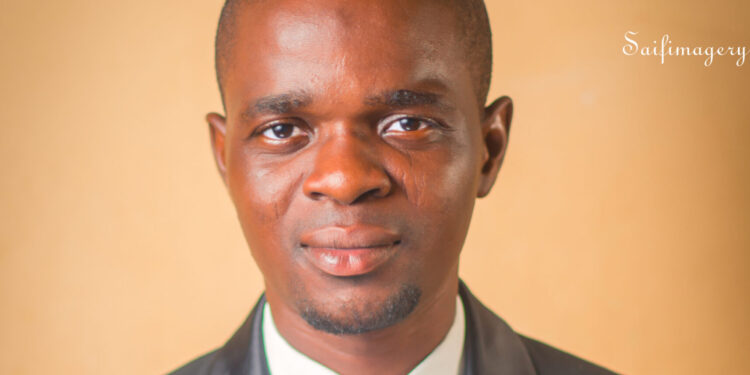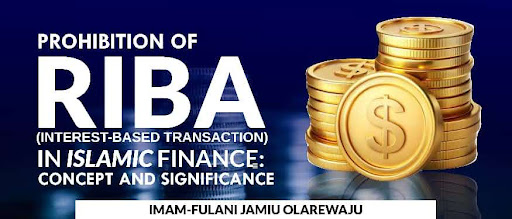MITIGATING THE DISCRIMINATON AGANIST MALE STUDENTS BY IMMORAL EDUCATORS IN TERTIARY INSTITUTIONS: THE POSSIBLE LATENT FUNCTON OF ANTI-SEXUAL HARASSMENT BILL
by Muhammad Ahmad Isa
Introduction
The anti- sexual harassment bill titled: ‘A Bill for an Act to prevent, prohibit and redress Sexual Harassment of students in tertiary educational institutions and for matters concerned therewith, 2019’ (hereinafter referred to as “the bill”), was introduced in 2016. The bill was sponsored by Sen. Ovie Omo-Agege and 57 other senators. The 8th Assembly of the Senate passed the bill, but it was rejected by the House of Representatives when it was sent for concurrence.
Again, Sen. Ovie Omo-Agege and 106 other senators reintroduced the bill in 2019. The bill was reintroduced to the Senate two days after a BBC documentary exposed two lecturers of the University of Lagos, and a lecturer of the University of Ghana for sexual harassment. The documentary sparked reactions from many Nigerians who described the issue as a norm in Nigerian universities.
The Senate, in July 2020, after the third reading, passed the bill. The bill was later transmitted to the House of Representatives for concurrence. The House, in February 2022, passed the bill after the Third Reading.
The Senate President, Ahmad Lawan, later constituted a seven-man committee, headed by Senator Opeyemi Bamidele (Ekiti Central) to harmonise the two versions of the bill passed by both Houses before it was sent to President Muhammadu Buhari for assent.
However, after it was passed by both the Senate and House of Representatives, the bill was not signed by President Buhari. Again, the National Assembly on Wednesday, June 07, 2023, passed the bill before the dissolution of both Houses.
Unlike the misconceptions of people that the bill is to address sexual harassment against female gender only, the bill is meant to protect both genders from sexual harassment in tertiary educational institutions. This is because clause 26 of the bill in defining the term “sexual intercourse“ notices the fact that “a male student can be sexually harassed by a female educator.”
Notwithstanding, female students are more often the victims of sexual harassment. According to the 2018 survey by the World Bank Group’s Women, Business and Law, 70 per cent of female graduates from Nigerian tertiary institutions have been sexually harassed in school.
Despite the manifest function the bill will perform if signed into law, it could also perform a positive latent function which it shall be identified here.
- Conceptual Clarification
Defining some terms (such as “administrative head, educator, highest management body, institution, and student”) that the reader of this essay would encounter is significant. These terms have been defined by Clause 26 of the Bill as thus:
In this Bill, unless the context indicates otherwise,
“administrative head” means a vice chancellor of a university, a rector of a polytechnic/monotechnic, a provost of a college of education or any officer who is the chief executive officer of any tertiary academic institution or any person acting in that capacity.
“educator” means every employee of a tertiary educational institution including all academic and non-academic staff, or a faculty or non-faculty member of a tertiary educational institution including a professor, lecturer, graduate assistant, post-doctoral fellow or associate serving as a full-time or part-time instructor or a teaching fellow in similar institutional roles who teaches, educates or trains students or who provides professional educational services; or a staff or member of any tertiary educational institution who may have authority over or a mentoring relationship with any student and also includes, coaches, supervisors of student employees, advisors and directors of student organizations, students’ residential fellows, and persons who advise, mentor, or evaluate students or any person who oversees any aspect of any student’s academic work.
“highest management body” means the body of officials or persons in charge of the day to day management and administration of a tertiary educational institution.
“institution” means any public or private tertiary or post-secondary educational institution in Nigeria and this includes any university, polytechnic, monotechnic, or college of education.
“student” refers to any person enrolled in any educational or training programs of a tertiary educational institution or post-secondary institution.
2) Cases of Sexual Harassment in Tertiary Educational Institutions
The Guardian, reported that between January 2021 and June 2022, there were cases of sexual harassment involving lecturers in universities and polytechnics in the country.
In 2021, three lecturers of Obafemi Awolowo University (OAU) Ille Ife, Osun State, were dismissed over alleged sexual harassment of students. In April 2022, the Institution also investigated sexual harassment allegations.
In January 2021, Kaduna State University dismissed a lecturer for sexually assaulting a student. In June and August of the same year, University of Lagos and the University of Port-Harcourt, Rivers State, each sacked a Lecturer over allegations of sexual harassment.
The Federal Polytechnic, Bauchi in October 2021 sacked two lecturers over sexual harassment allegations. Also, an academic at Ignatius Ajuru University of Education was sacked for allegedly impregnating a female student. In June 2022, the Vice Chancellor, University of Abuja, Prof. Abdul –Rasheed Na’allah, said two lecturers were dismissed over sexual misconduct.
Overview of the Bill
By virtue of clause 1 of the bill, it objective is to promote and protect ethical standards in tertiary education, the sanctity of the student-educator fiduciary relationship of authority, dependency and trust and respect for human dignity in tertiary educational institutions, by providing for:
(1) protection of students against sexual harassment by educators in tertiary educational institutions;
(2) prevention of sexual harassment of students by educators in tertiary educational institutions; and
(3) redressal of complaints of sexual harassment of students by educators in tertiary educational institutions.
To this effect, clause 4 of the bill creates the following offences:
1.An educator shall be guilty of committing an offence or a felony of sexual harassment if he/she –
(1) has sexual intercourse with a student or demands for sex from a student or a prospective student; or
(2) intimidates or creates a hostile or offensive environment for the student by soliciting for sex from the student or making sexual advances towards the student; or
(3) directs or induces another person to commit any act of sexual harassment under this Bill, or cooperates in the commission of sexual harassment by another person without which it would not have been committed; or
(4) grabs, hugs, kisses, rubs or strokes or touches or pinches the breasts or hair or lips or hips or buttocks or any other sensual part of the body of a student; or
(5) displays, gives or sends by hand or courier or electronic or any other means naked or sexually explicit pictures or videos or sex related objects to a student; or
(6) whistles or winks at a student or screams or exclaims or jokes or makes sexually complimentary or uncomplimentary remarks about a student’s physique or stalks a student.
Clause 5 of the Bill makes it a defence that the educator and the student are legally married. And Clause 6 makes it not to be a defence to any offence created in Clause 4 of the Bill that a student consented to any offence.
Clause 16(1) of the Bill mandates the administrative head of an institution to establish an Independent Sexual Harassment Prohibition Committee in consultation with the highest management body of the institution. An administrative head of an institution who fails to comply with the provisions is guilty of an offence and shall be liable on conviction to a minimum fine of N5,000,000 or imprisonment for 5 years, or both.
Where a student makes a Sexual Harassment Complaint against an educator, an institution’s Independent Sexual Harassment Prohibition Committee established under this Bill shall investigate, determine and render a final decision on the merits of the complaint in line with the provisions of the Bill.
The Bill gives a student who complains of or alleges sexual harassment by an educator the right to commence and maintain a criminal or civil action in Court for breach of fiduciary duty of care.
Where at the completion of an investigation into a Sexual Harassment
Complaint, an Independent Sexual Harassment Prohibition Committee
finds or determines in its final decision that the complaint is false and
malicious, the Committee may, recommend sanctions to the
administrative head against the student who made the complaint.
By virtue of clause 11 of the Bill, ‘Any person who commits any of the offences or acts specified in Clause 4 (1), (2) and (3) of the Bill is guilty of an offence of felony and shall, on conviction, be sentenced to an imprisonment term of up to 14 years but not less than 5 years, without an option of a fine.’
Additionally, the penalty in Clause 12 of the Bill is thus;’ any person who commits any of the offences or acts specified in Clause 4 (4), (5) and (6) of the Bill is guilty of an offence and shall be liable on conviction to imprisonment term of up to 5 years but not less than 2 years, without an option of a fine.’
How the Bill Could Mitigate the Discrimination Against Male Students If Signed into Law
Did you know that the educators that usually harass students (especially the female students) sexually, give more attention to female students than the male students?
Such educator when a female student ask a favor from him, and sometimes not even a favor but a duty imposed on him by law, he makes sure everything is done as requested unlike when a male student requests same. This is because such immoral educators demand or solicit for sex or make sexual advances toward female students. Whilst such is rarely done to male students. This is the main reason for discrimination against male students by such immoral educators.
Hence, Clause 6 of the Bill provides; ‘It shall not be a defence to any offence created in Clause 4 of this Bill that a student consented to any offence.’ The effect of this provision is that, when an educator found guilty of having a sexual relationship with a student with or without the student’s consent, he could be sentenced to an imprisonment term of up to 14 years (see Clause 11 of the Bill as reproduced above).
Indeed, the provisions of the Bill particularly Clauses 4,611&12, if signed into law, would deter educators from having sexual relationships with students (especially female students) and harassing students sexually. And if these happen, male students will be treated equally with female students before the immoral educators since the educators might not have any immoral relationships with female students (which is the reason for the discrimination).
The importance of this bill as a deterring factor that it could serve cannot be overemphasized. In the case of State v. Okechukwu (1965)9 ENIR 91, the court had this to say in regard to deterrence:
…this general theory of deterrence, which subordinates the individual to the supposed greater good of the community and which thus counter the notion of fair desserts for the individual is a much favoured judicial attitude. This is especially so when it is fact that a certain type of crime is on the increase and needs to be severally represented.
Conclusion
The anti-sexual harassment bill if signed into law would prevent, prohibit and redress sexual harassment of students in tertiary educational institutions in Nigeria. It could also perform a positive latent function which is mitigating discrimination against male students.
Indeed, if the Bill is signed into law, it would be a landmark legislation. Therefore it is the humble submission of this writer that the Bill should be signed by the present president, Bola Ahmed Tinubu.




![Isin Kara: Business activity commences as Olusin Inspects Market [Video]](https://ideemlawful.com/wp-content/uploads/2025/08/IMG-20250812-WA0016-75x75.jpg)












![[PICTORIAL]: Details Emerge Tinubu’s Bilateral Meeting With Chinese Envoy](https://ideemlawful.com/wp-content/uploads/2023/06/IMG_2443-jpeg.webp)





